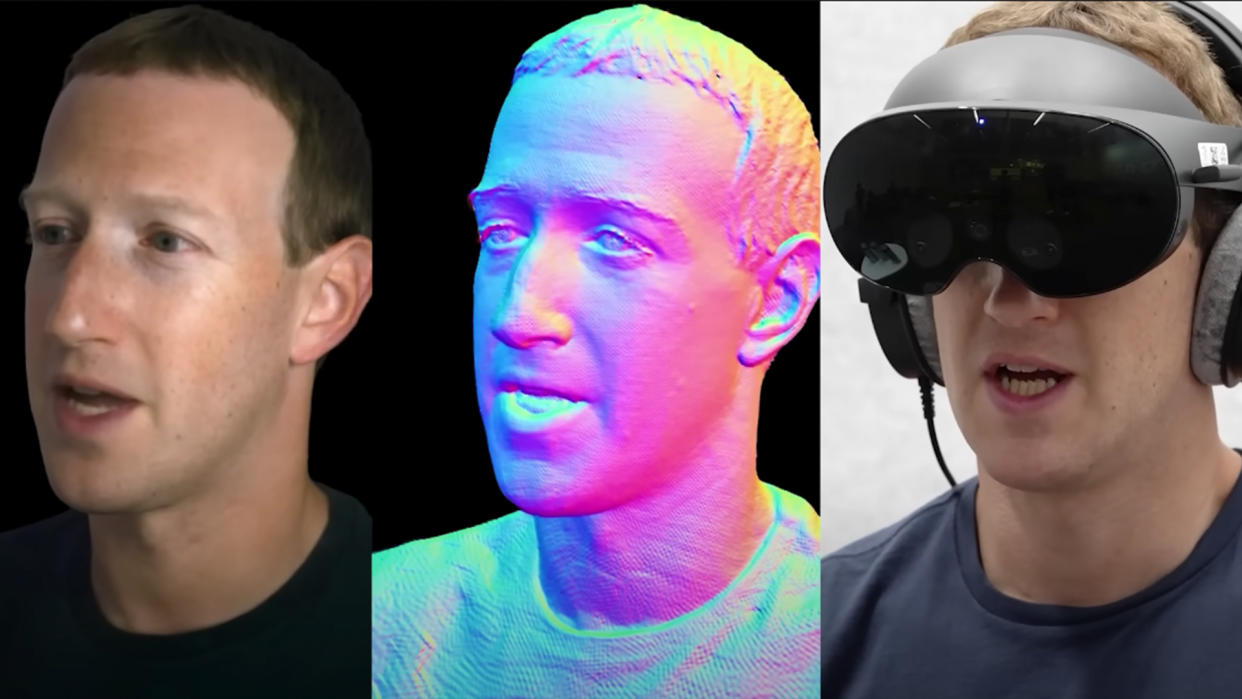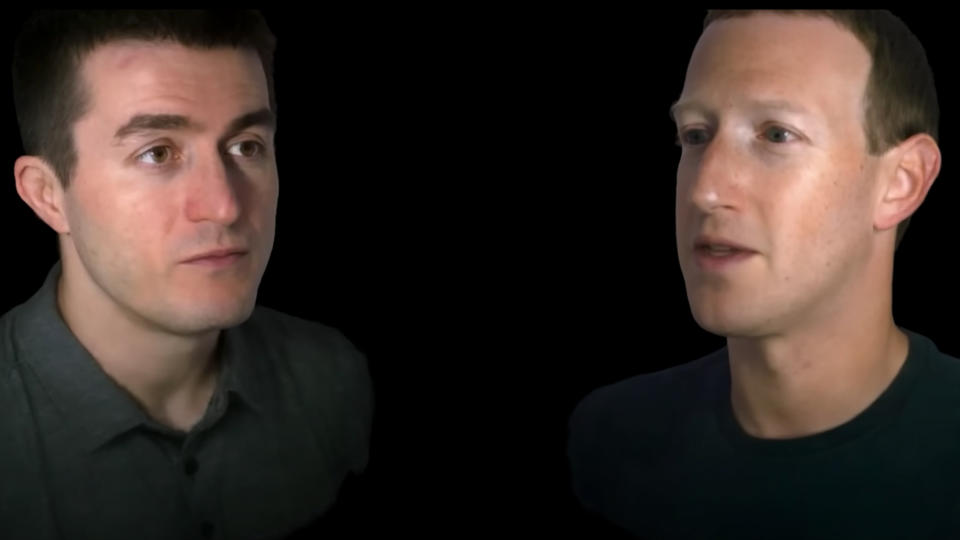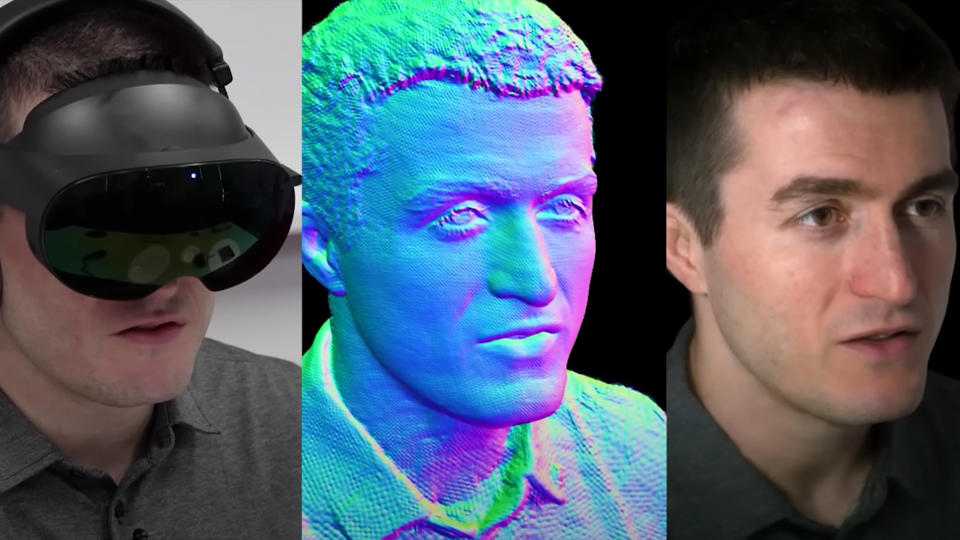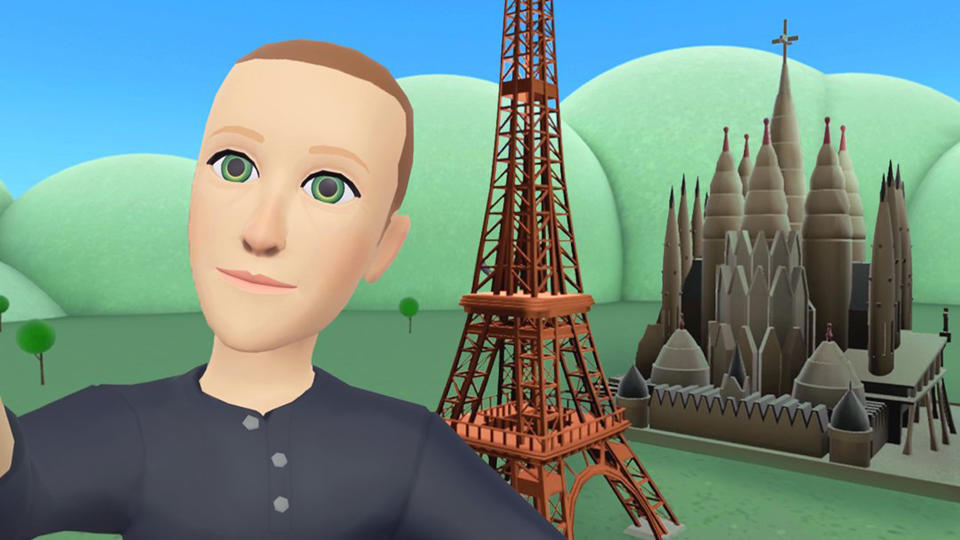Zuckerberg's new VR avatars are surprisingly realistic

- Oops!Something went wrong.Please try again later.
- Oops!Something went wrong.Please try again later.
Meta CEO Mark Zuckerberg has unveiled the latest advancement in Meta's VR technology, which is now capable of recreating a photorealistic rendition of the user's face. In an interview hosted by computer scientist and podcaster Lex Fridman, both parties sported Meta Quest Pro headsets and conversed entirely in VR, showcasing a huge improvement from Zuckerberg's previous adventures in the Metaverse.
The sophisticated technology uses Meta’s extremely (and disturbingly) lifelike Codec avatars that are still in the prototype phase, but there are plans to develop the technology for general consumers in the near future. (If you want a taste of virtual reality, check out our collection of the best VR headsets).

Fridman began the interview by sharing his amazement at the technology, stating that the realism of the VR avatars was incredible, and it felt like he and Zuckerberg were in the same room. The room in question was a type of impenetrable black void – which will presumably be subject to development when the technology reaches general audiences – but in this case, it felt like the appropriate setting to display the sheer detail of the avatars.
The photorealistic renders feature high-definition details of the face, such as facial hair, skin texture and freckles, which all add to the immersive lifelike experience of the technology. The synching of the avatars effortlessly mimics natural facial movements and allows even the famously unexpressive Zuck, to show some character.

To create these intricate models, both Zuckerberg and Fridman underwent intensive facial scanning with over 100 cameras, to capture their likenesses in full photorealistic detail. Zuckerberg claims that currently, Meta will "probably need to over collect expressions," before it can work on a more user-friendly model that requires less extensive scans.
However, the CEO has shared plans to develop the technology, making it accessible to general Meta users."The goal, and we have a project working on this already, is just to do a very quick scan where you take your cell phone, kind of wave it in front of your face for a couple of minutes, say a few sentences, make a bunch of expressions," Zuckerberg shares.
Despite the clear groundbreaking detail of these VR renditions, the avatars have a slightly uncanny style of movement that makes them appear a little twitchy. As a viewer, it's hard to feel a sense of immersion when watching the video, but it's clear that the experience felt very real for Fridman, who said: "There's an uncanny valley that seems to have been crossed here."
Before this sophisticated update, the Metaverse was the subject of ridicule, after Zuckerberg debuted the far less detailed Horizon Worlds – a cartoonish 3D avatar world. While the once legless floating entities of Horizon World have since had an appendage-adding update, its basic caricature style has never quite taken off with users.

Although it's a little while off, it seems that this updated technology is somewhat of a grand comeback for Zuckerberg, who's proven that Meta certainly has the technology and innovation to make the Metaverse into more than a juvenile 3D chatroom.
Recently Zuck can't seem to stop, as he recently announced a host of celebrity AI chatbots that nobody asked for, and Meta's hot on the AI trend, introducing a free AI model that could take ChatGPT's crown.

